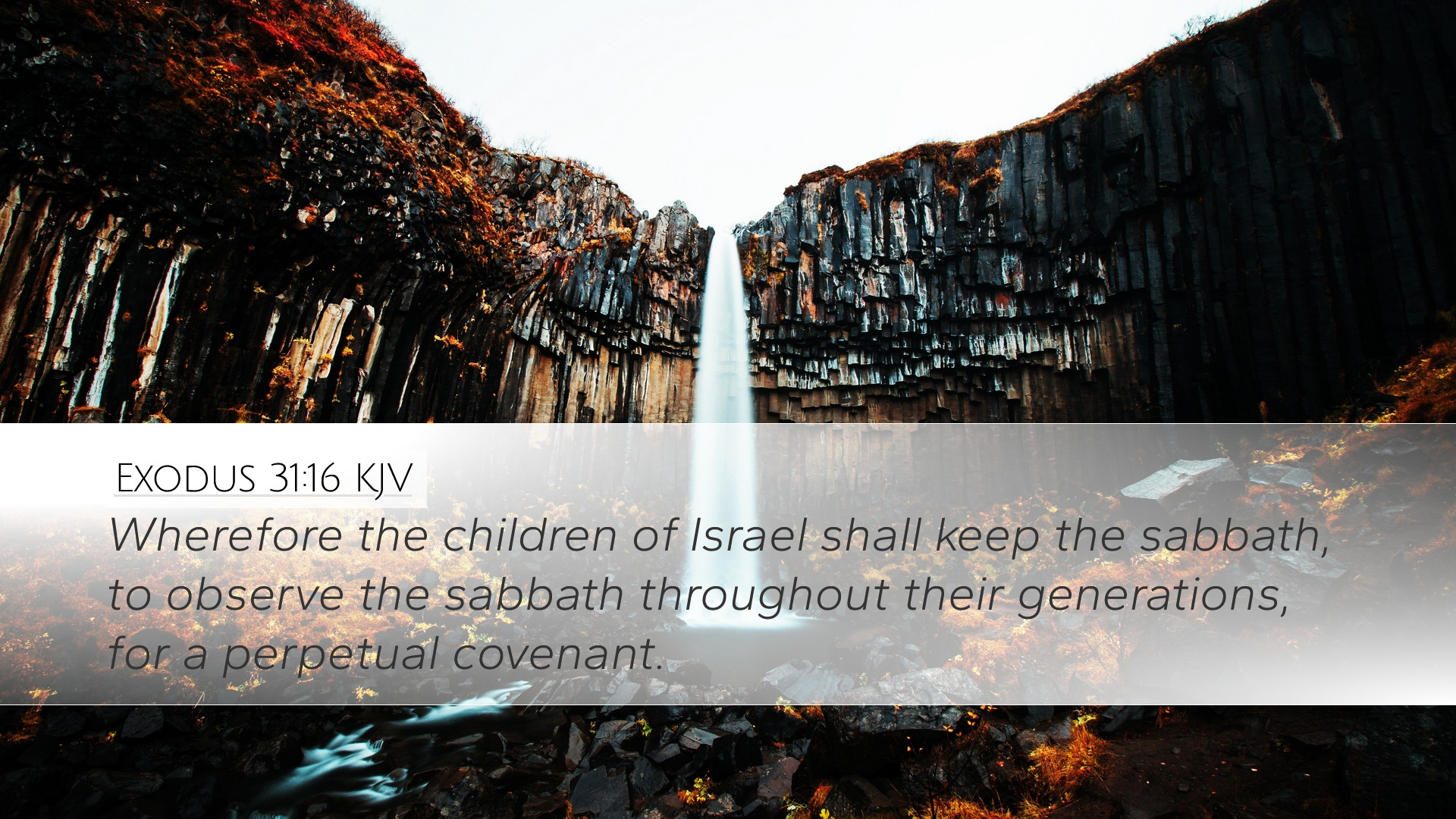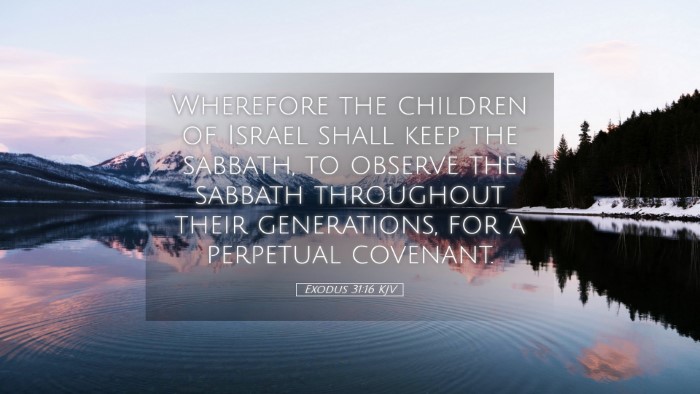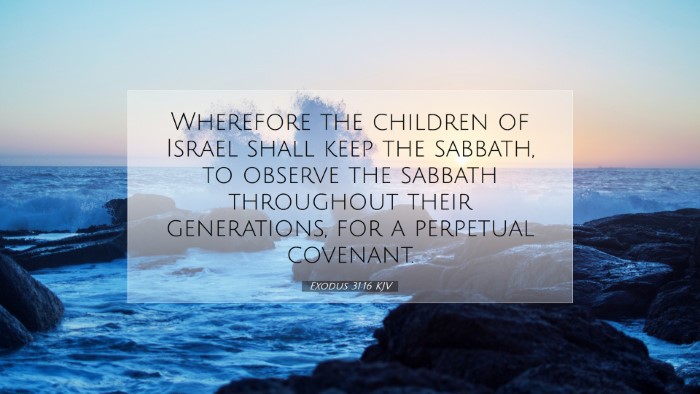Commentary on Exodus 31:16
Verse: "Wherefore the children of Israel shall keep the sabbath, to observe the sabbath throughout their generations, for a perpetual covenant."
Introduction
Exodus 31:16 serves as a pivotal verse within the discussion of the Sabbath, delineating its importance not only as a command but also as a sign of the relationship between God and His people. In this commentary, we draw insights from prominent public domain commentators like Matthew Henry, Adam Clarke, and Albert Barnes, exploring the theological implications of this commandment.
Theological Significance of the Sabbath
Matthew Henry's Insight: Matthew Henry emphasizes the Sabbath’s role as a day of rest and spiritual renewal. He notes that keeping the Sabbath is not just about refraining from labor but involves dedicating oneself to worship and reflection on God's creation and providence. He asserts that this ordinance is a blessed opportunity to contemplate God's greatness and to foster a deeper relationship with Him.
Albert Barnes' Perspective: Barnes elaborates on the perpetual nature of the Sabbath observance, indicating that it is a sign of the covenant between God and Israel. He acknowledges the historical context of the Israelites, who after years of servitude in Egypt needed a profound reminder of their identity as God's chosen people. This rest was both a physical necessity and spiritual command that sets Israel apart from other nations.
Adam Clarke's Commentary: Clarke adds a significant cultural aspect, noting that the Sabbath also serves to instill discipline among the people. It creates a rhythm in life that forges a communal identity anchored in shared values and priorities. Clarke emphasizes that the observance of the Sabbath as mandated by God leads to spiritual communion and is an expression of fidelity to God's instructions.
The Perpetuity of the Covenant
The phrase "for a perpetual covenant" suggests a timeless agreement that extends beyond the immediate audience of the Israelites. Each commentator brings their unique viewpoint to the implications of this enduring covenant.
-
Matthew Henry: He denotes the necessity of this commandment for future generations, highlighting that it instills a sense of holiness in their socioeconomic practices. It is a reminder that their existence is intertwined with God's governance.
-
Albert Barnes: Barnes supports the view that this commandment is not only significant for ancient Israel but continues to hold value for believers today. The adherence to a day of rest mirrors the need for spiritual renewal in contemporary society.
-
Adam Clarke: Clarke points out that while some may view the Sabbath as an archaic ritual, its principles of rest and worship remain relevant. He argues for applying the Sabbath command in a modern context, where the need for rest and reflection is as critical as ever.
Practical Applications for Believers
The insights provided by these commentators guide us toward practical applications of the Sabbath, urging believers to not only observe this day but to comprehend its deeper significance in their spiritual lives.
-
Worship and Reflection: Emphasizing Matthew Henry's call for worship on the Sabbath, believers should engage in activities that draw them closer to God, such as prayer, meditation, and Bible study.
-
Community and Family: Following Barnes' insights, the Sabbath should be a time for families and communities to gather, providing an opportunity for fellowship that strengthens community ties and supports one another in the faith.
-
Physical and Spiritual Renewal: Clarke highlights the necessity of rest not just as a cessation from work, but as a renewal of spirit. Believers can use this time for rejuvenation, allowing their spirits to be refreshed and recharged for the week ahead.
Conclusion
Exodus 31:16 stands as a testament to the importance of the Sabbath in the life of God's people. Through the commentary of esteemed scholars like Matthew Henry, Albert Barnes, and Adam Clarke, we uncover layers of meaning within this commandment. Its implications resound throughout generations, calling believers to observe the Sabbath not merely as a ritualistic obligation but as a vital practice that fosters spiritual growth, communal bonds, and a rhythmic life in accordance with God’s design.


